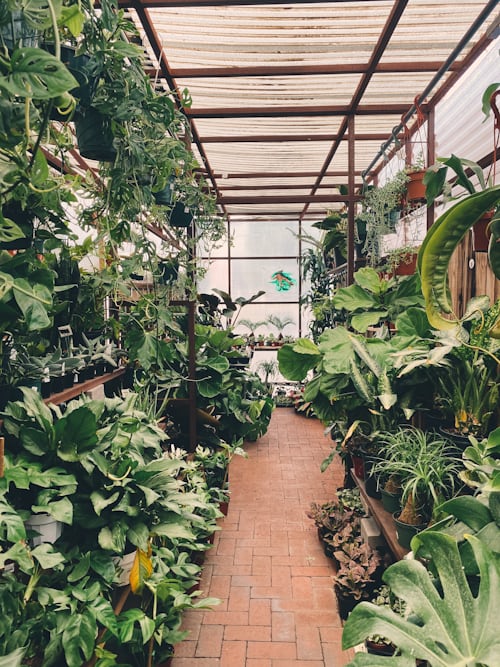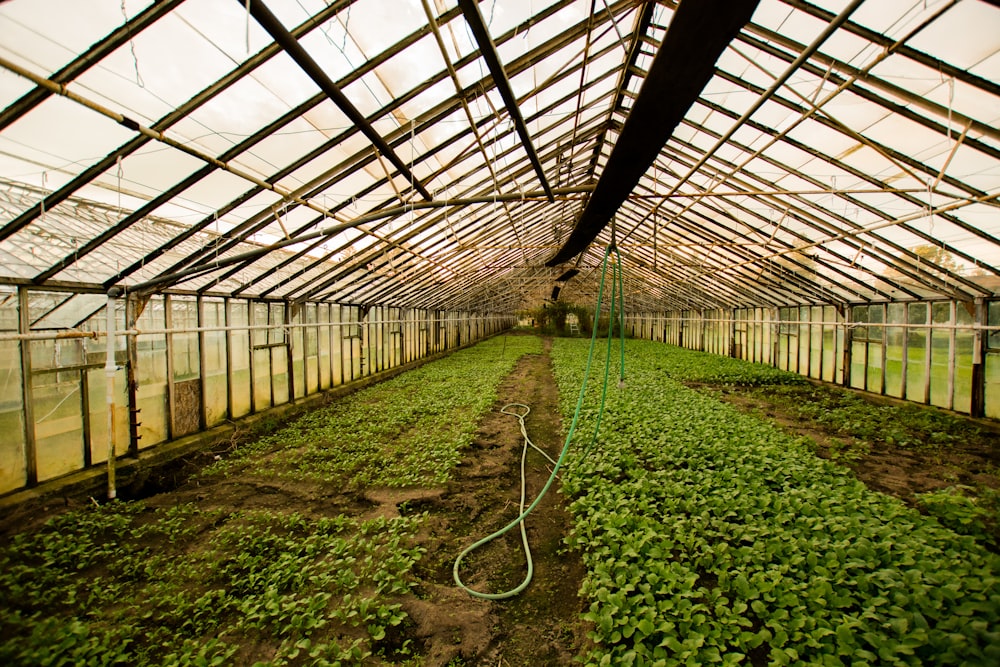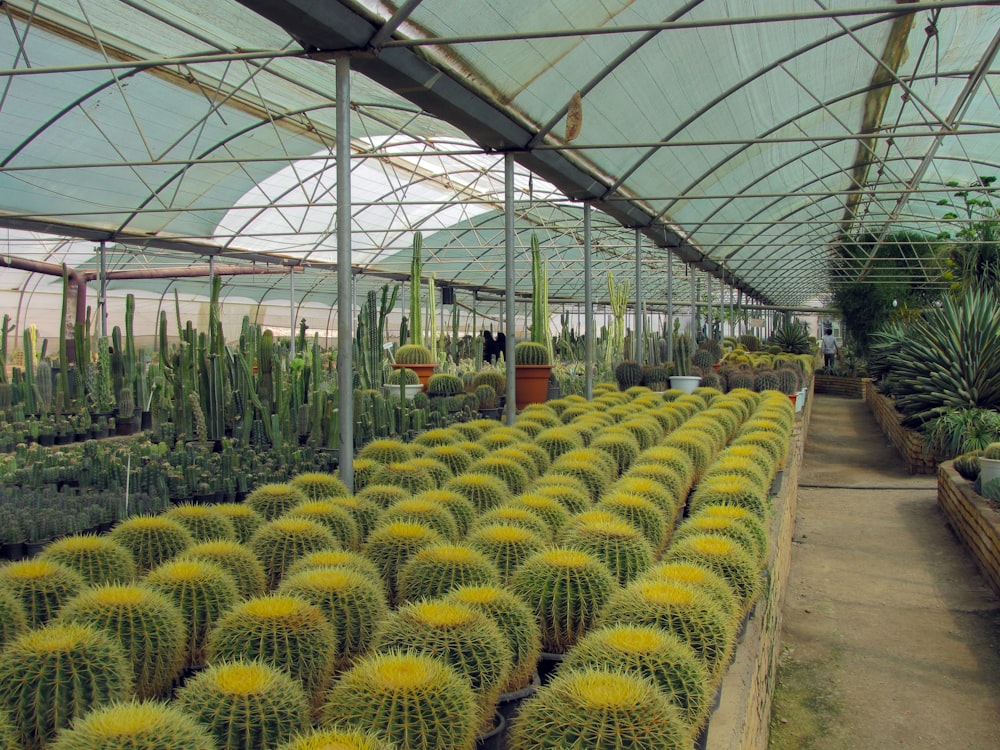How to Start a Plant Nursery Near Me

What is a nursery for plants?
A plant nursery near me is a company where plants are propagated, produced, and sold, to put it simply. The plants can be marketed to individual gardeners or to businesses like grocery stores or landscaping firms.
The seedlings or trees are cultivated until they are ready for the intended buyer to buy, regardless of whether nursery owners grow huge plants or smaller plants or specialize in growing trees. So to speak, expanded to a size that is practical.
How Much Money Do You Need to Start a Nursery?
Retail nurseries’ profits vary depending on the nursery’s size and location.
Smaller, backyard nurseries near me for plants might make anything from $7000 to $40,000 per year. One potted plant could cost $1 at a modest nursery, while a specialist plant, such a rare orchid, might fetch $100s.
For big nurseries, the yearly ranges range from $40,000 to $625,000. Large nurseries sell a lot of plants, such a thousand trees or acres of ground cover. Japanese maples have been the most often planted trees in recent years.
For every square foot you utilize to produce plants, you can typically expect to make $20.
Making Money with a Plant Nursery Near Me
Even if you have a green thumb and love plants, it’s not as easy as planting a seed, growing a plant, and selling it.
You also require commercial acumen and cautious preparation at the same time. Here are a few advices:
Education: Read a lot, work at a greenhouse, or pursue professional development. You must be able to recognize different types of plants as well as issues with them (such as fungus, disease, and insects).
Sound Techniques – Successful nurseries, whether they are small, home-based operations or massive plant nurseries, all have this trait. From the seed to the “sell ready” stage of a plant or tree, certain processes must be taken.
Mix It Up – Most nursery near me plants for sale initially expect to generate the majority of their sales from a typical, simple-to-grow plant product. Numerous nurseries, even tiny growers, will also include a specialist plant or tree propagation. Your specialty product may be a single plant.
Planning and timing – Congratulations if you live somewhere with a long growing season. If not, artificial lighting and heat will be used to start plants indoors. The only way to have as many plants ready as the consumers require is to pay extra money for this.
A well-organized setup is essential whether you intend to sell to walk-in clients or deliver your plants and trees to buyers. Plants should be simple to move, water, and care for.
Start Small: You may start a plant nursery near me in your leisure time or even as a family business. Even the youngest kids can bury seeds in the ground. As needed, increase the number of personnel (including seasonal part-timers).
| Aspect | How to Profit from a Plant Nursery |
| Education | Work in a greenhouse, study extensively, or get trained by an expert to recognize plants and deal with plant issues. |
| Acoustic techniques | For effective plant nursery near me operations, carefully follow the procedures from the beginning to the “sell ready” phase of plants or trees. |
| Diversify | To draw in more customers, combine ordinary, inexpensive plants with speciality, more expensive plants or grow trees. |
| Planning and Timing | Use artificial lighting and heat to start plants inside if the growth season in your location is short in order to supply the market on time. |
| Well-planned Setup | Establish a systematic system for watering, caring for, and transporting plants, whether you’re delivering plants to customers or serving walk-ins. |
| Start Little | Start with a modest nursery, maybe as a family business, and gradually expand by hiring seasonal or part-time staff. |
Several plant nurseries
There are four primary types:
Outdoor annuals marketed as plants or flowering plants sold as cut flowers are flowers and flower seedlings.
plants in seed form
Decorative woody plants that may be produced from cuttings
Trees can be purchased either bare root or in a container with its root ball.
Outdoor perennials such as hostas, bulbs, and daisies
domestic plants
The 21 Essential Steps to Starting Your Own Plant Nursery near me Business
Nurseries for plants near me are expanding as a small company in these difficult times. People like working on their homes while doing their jobs from home.
1. Develop Your Trade
Take courses, work with professionals, and read. Visit plant and garden expos. Learn everything you can about starting a tree farm or the plants you intend to sell.
2. Examine the opposition
Look out the holes in the local market by studying it.
3. Understand Your Market
Who is the perfect client for you? When should customers order the plants or trees they need? Which high-value plants ought to you cultivate?
4. Write a business plan for the plant.
Will beginning small, like other backyard growers have done, help you save money? Will you buy or rent the land? Initially or as the business develops? How many plants can you successfully cultivate and market on your own?
Will you deliver to consumers or have walk-in sales? Will you provide plants to garden stores or wholesale nurseries? Are you going to sell potted trees or tree seedlings?
When will you begin hiring staff?
5. Open an organization bank account
Open a company bank account and get a business credit card, even if you’re only a backyard nursery.
6. Select a Location
A successful nursery strikes a balance between a healthy environment for growth and a favorable location for sales. A small town nursery will be successful if customers from neighboring larger towns can easily discover and visit it.
7. Register Your Business and Choose a Name for It
Your secretary of state should register your business, and while there, you should make sure your desired business name is available.
A successful plant nursery near me has a memorable name that accurately describes its position in the industry. Choose a name that indicates your area of expertise, such as fruit trees if you intend to focus on them.
8. Decide on a business entity.
The LLC is a popular corporate structure for small companies. Your personal assets are safeguarded by the LLC, which isolates your company as a distinct entity.
9. Obtain Licenses and Permits
You will want a permit from the state Department of Agriculture to transport any kind of plant over state boundaries. If you want to import or export plants, you must also get a permission from the Department of Agriculture.
You’ll require a Nursery Floral License (for each of your locations) and/or a License to Sell Nursery Stock in the majority of states.
Because you’ll be selling a taxable item, you’ll need a business sellers permit.
10. Finish your taxes.
You must pay real estate tax on any land you buy for your business activities in addition to sales tax.
You will use a Schedule C to report your revenue and expenses if you are a lone owner.
Hire a tax expert who can advise you on the best method to set up your firm, especially once you begin going.
11. Purchase Insurance
You could require “business specific” insurance in addition to regular company regular Liability Insurance. In the case of large-scale outdoor farming, you might be able to obtain crop insurance in order to be able to file a claim for losses in the event of catastrophic events like hail or flooding.
12. Invest in the Required Equipment and Locate Suppliers
Although cow dung is an essential component of fertilizer, not all manure is created equal. For instance, the “fresh” kind could only be used professionally bundled or well-aged and be packed with weed seeds.
Here are some more necessities for fundamental equipment besides fertilizer:
- several hand tools
- Container soil
- Pots and utensils
- Starter plants and seeds for cuttings
- gloves for gardening
- watering apparatus
13. Select Your Irrigation Technique
Your best option, given the price of metered water, is to get water from your own well.
If you’re working on a small area, you can carry water by hand; if your area is larger, you can put up an irrigation system.
14. Establish a Web Presence
Make a polished website with lots of photos in color. Add a website link to an email. Ensure that you appear in a Google search.
Use social media, like Facebook, to advertise your company.
15. Set your prices at
Consider the prices that your rivals are charging. Prices should be posted on your website and social media pages. Make sure your rates are prominently marked if you are available to the public.
16. Find lenders.
You’ll eventually want to grow your company. It’s never too early to start considering your alternatives.
17. Hire personnel and obtain an EIN
You’ll want an Employer Identification Number (EIN) whenever you start hiring workers. To report payroll taxes to your state, utilize that number.
18. Begin Plant Growth or Purchase Plants
You’ll either continue to develop established plants or start plants from seed. You may also buy plants that you’ll utilize as cuttings, such woody ornamentals.
19. Promote Your Company
Every time you make a transaction, provide business cards to reach additional potential consumers.
Speak with businesses like florists, grocers, and landscapers.
Can you publish a how-to article in a neighborhood newspaper or on social media? Utilize your company’s Facebook profile to provide this service. That’s a fantastic example of unpaid advertising.
20. Selling Your Crops
You’ll need a dependable delivery truck if you want to sell plants, unless your firm just attracts “walk in” clients. Depending on the temperature where you reside, a refrigerated vehicle can be necessary. That will guarantee that the plants you provide are healthy.
21. Expand Your Business
A prosperous small firm is constantly looking for new opportunities to expand. Do not place all of your plants in one container or basket. Diversify.
Conclusion
Although it’s not as straightforward as just planting a seed and selling the plants, starting a plant nursery may be a rewarding and even successful endeavor. It calls for a blend of business experience, horticultural expertise, and meticulous preparation. Reading widely and receiving specialized training can help you recognize plants and deal with any problems like fungus and insects. Education is important.
Follow proven methods from small-scale home nursery near me for plants to bigger ones to ensure that plants are nurtured and developed to the “sell ready” stage if you want to succeed. To appeal to a wider client base, diversify your offers by blending common, inexpensive plants with specialized, more expensive ones.
Timely preparation and execution are essential, especially if you live in a region with a limited growing season. Start plants indoors with the use of artificial lighting and heat to have them ready when clients need them. Organize your setup to care for, transport, and water plants effectively.
Starting small is a practical strategy that enables you to progressively scale up as your firm expands. When necessary, take into account hiring seasonal or part-time workers. To choose the best plants to cultivate and sell, research your target market and the competition.
Register your company, give it a name, and decide where it will expand and sell. To guarantee compliance and safety, get the required insurance, licenses, and permits. Plan your budget, decide on your rates, and promote your company online, on social media, and through other regional channels.
Keep in mind that success in the plant nursery industry necessitates ongoing efforts to develop and advance. Provide a range of services, remain flexible to new opportunities, and strategically expand your company. Your plant nursery may flourish into a successful and gratifying business with perseverance, a green thumb, and the appropriate strategy.






:max_bytes(150000):strip_icc()/perennial-flower-garden-layout-5219484-hero-98d6bf293bf84f2e9aff39481210681c.jpg?resize=800%2C450&ssl=1)


